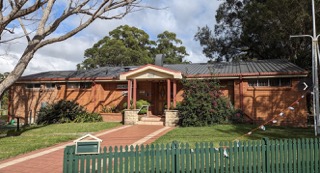DAS Neerlandia is a community organisation founded 70 years ago in the Northern Beaches of Sydney. This group was founded out of the community built around Het Tentenkamp, a tent city in the Northern Beaches following World War 2 and the influx of immigration it brought with it.
The Dutch like many under the occupation of the Nazis were returned to a country destroyed, and many rather than rebuilding sought to find a new life of opportunity and peace in Australia. However, the 14000 km distance was and is still an enormous way to go. Further, the Dutch community unlike the Italian, Greek or German community had no organisations helping resettlement of people to Australia. DAS was born out of this absence.
Centrally DAS was a club focussed on continuing Dutch culture, language, food, and drink. But also, in the early foundation of the club, it was a mutual cooperation, which played a vital role in establishing migrants into the area. Reading their own historical book which was written 20 years ago by Mijntje Hage shows how the club in its earliest years focussed on mutual cooperation. When one family would move out of Het Tentenkamp one more would move in buying the plot and a ladder of the Australian dream would be climbed. But the club also had a hand in the dramatic arts, games, sport, travel, and ‘discos’.
I first found out about this club as I searched for a place for my partner who is Dutch to feel gezillig and at home just a little. It has a brick-and-mortar club house nowadays which is its centre of activities compared to roaming between community centres from the 50’s to the 80’s.

The club has an ageing population which is getting smaller due to the passing of time and a lack of migration from the Netherlands. This is understood by the President and Secretary who are constantly trying to gain more members. This is hard as COVID changed the fabric of the community and individuals are more atomised than ever before. This club is really special and plays an important part in the community still and that is why I’ve chosen it for my project as places like these need to remain in the community.
I intend to create the historical project around the people of the club, and not the institution itself. Why? Because the club is the volunteers, it is the Klaverjas club, it is the Oma’s who come every year with their huge families to eat bitterballen and vlaai. I will be able to interview them through a plan help devised by a classmate (Rose I think her name is please forgive me if it’s not). I as a bartender by trade will volunteer behind the counter and be able to have a captive audience of people. They will then be surveyed on their life at the Dutch club. From that, I am creating a multimedia website to collect the sounds, sites, and histories of the club. To help them I also am going to be adding survey questions to ask the clientele what they want to see more at the club and what will make them come more.
This club is so special. In an Australia in which community organisations like Workers Clubs, RSLs, and Bowling Clubs are dominated by problem drinking and the massive stain of addictive poker machines the Dutch club stands pure. Community organisations are supposed to serve the purpose of helping the community, and this is the sole purpose of this club.
Dankewel en Tot Ziens.
